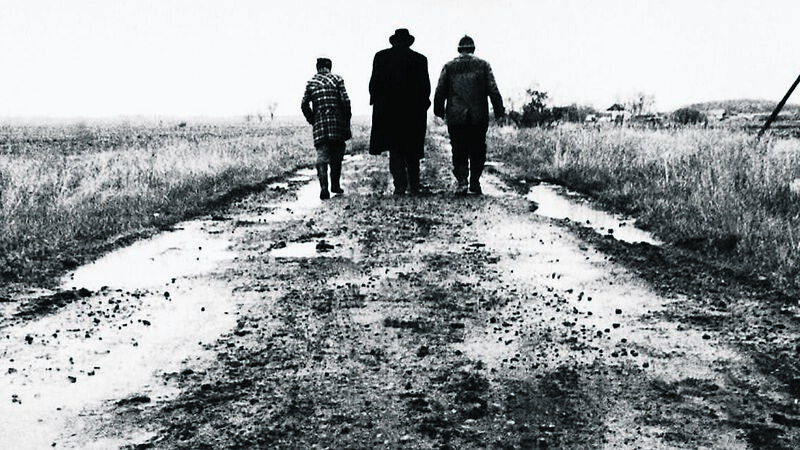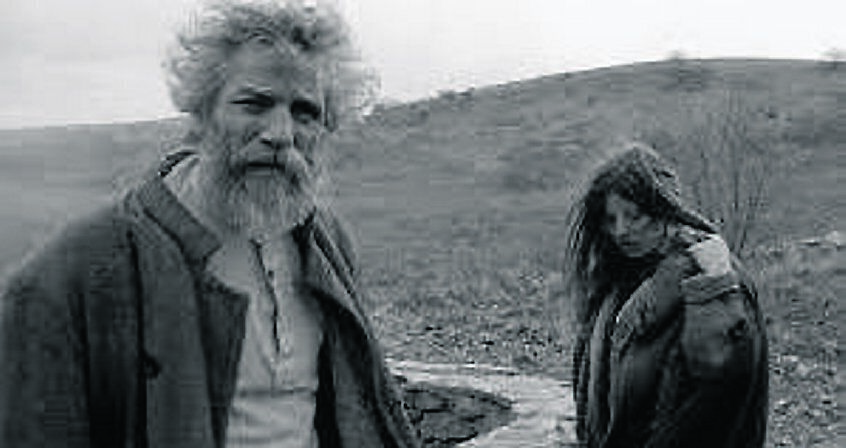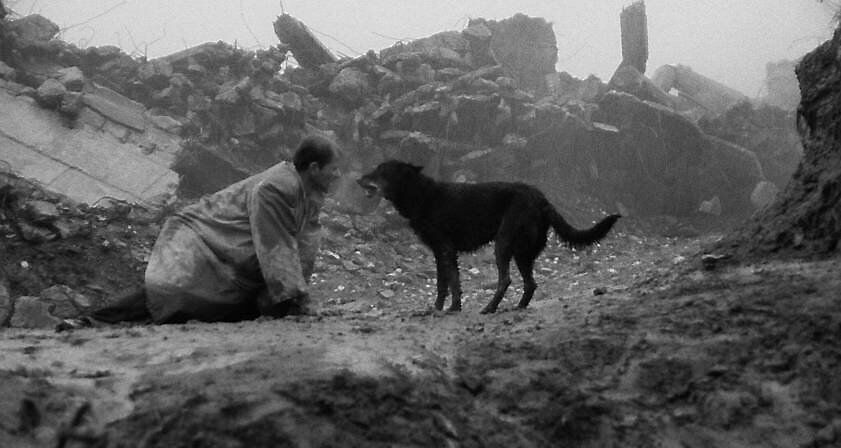Classic film, 7 hours long, to be screened at Cork venue

A scene from Sátántangó, by Hungarian director Béla Tarr - it is seven hours long and viewed as a cinema masterpiece.
Béla Tarr is one of cinema’s finest protagonists. The auteur director, beloved by cinephiles and film-makers, was a well-kept secret for a long time. His work was little known outside of his native Hungary.
Those who discovered him treated his work with a cult-like status, a cult that finally emerged out into the wider world. And yet, for all his accomplishments, he is not a household name. In some ways, he is still a secret.
Will Heaven Fall Upon Us? A Béla Tarr Retrospective is about to introduce Tarr to a new generation of fans, and will give the already converted a chance to see his work on the big screen one more time.
The retrospective begins this Saturday in Triskel Cinema with Tarr’s longest film, the seven hour Sátántangó, based on Laszlo Karsnahorkai’s novel. Karsnahorkai was Tarr’s long-time collaborator and wrote several screenplays for his films.
Seven hours is a big ask, but Chris O’Neill, Fead of Cinema at Triskel, says the film, which focuses on the fall of Communism in eastern Europe in a small Hungarian town, is well worth the effort of sitting for so long.
Due to its length and subject matter, there is no doubt that Sátántangó is certainly not for everyone, but it is an important film, one of the most significant European films of the late 20th century, and a film few people have seen due to the length.
“Béla Tarr is a unique talent, and anyone interested in cultural/arthouse cinema should consider seeing it.”
O’Neill says the film is a perfect experience for the adventurous cinephile.
“As a viewer, you ‘tune into’ the film’s slow-burning pace, its beautiful black and white cinematography, and dark sense of humour, while seeing it on the big screen of a cinema. Sátántangó is quite a viewing experience for the most adventurous of film enthusiasts willing to spend a day at the cinema.”

Tarr intended to make the film shortly after the book’s release in 1985, but due to the political situation in Hungary, he could not.
He was finally able to shoot it in 1994. It regularly appears on top film lists and is regarded by many critics as the best film “never seen”. The film’s length deters many from watching it.
It should be noted that the film contains scenes of violence towards animals, which may be upsetting to some viewers.
Tarr began making short films as a teenager. In 1979, when he was 22, he made his first feature, Family Nest. By the late 1980s, he found his niche as a brooding director who shoots in black-and-white and focuses on characters often at their lowest ebb or who are figuratively trapped in a set of circumstances.
His stark themes can isolate viewers, but his approach results in cinematic majesty for others. Tarr excels at long shots and meticulous camera work, bringing his subjects to life with powerful imagery.
Niamh Warner is a member of the Triskel team. She studied Tarr’s work as part of her Master’s in UCC and says the three other films featured in the retrospective - Damnation, Werckmeister Harmonies, and The Turin House - are essential viewing for any film lover.
Warner describes Tarr’s 1988 Damnation as his breakthrough. “Tarr’s signature style - black-and-white cinematography, sparse, poetic imagery - can first be seen in Damnation, a tragi-comic noir meditation on obsessive love and survival, following a lonely worker and an unhappy cabaret singer in a gloomy mining town.”
With a screenplay by Karsnahorkai, the film’s lonely worker Karrer is played by Miklós B. Székely, who spends his time in the Titanik bar longing for a singer who has a husband but returns Karrer’s affections. Karrer conjures up ways to get her out of her marriage so they can be together, but as the old saying goes, the course of true love never runs smooth, never more so than in a Tarr film.

Warner says that Tarr’s Werckmeister Harmonies, released in 2000, showcases more of the film-maker’s thematic preoccupations. “The arrival of a circus in a small village and the resulting uprising serve as a powerful parable exploring revolution and repression.”
Based on Karsnahorkai’s novel The Melancholy Of Resistance and with a screenplay by Karsnahorkai and Tarr, Tarr’s wife and long-time collaborator, Ágnes Hranitzky, co-directed the film. She is also the film’s editor. The couple met in 1978 and have been together ever since.
Werckmeister Harmonies follows a man and his uncle during a cold winter in their Communist-era village. When a circus comes to town, a strange hysteria breaks out amongst the residents, unsettling all their lives.
Warner says that Tarr’s final film, The Turin Horse, “transforms a tale of a man, his daughter and their ailing horse into a profound and moving look at the difficulty of human existence and the coming apocalypse.”
Drawn from the story of Nietzsche and the horse in Turin, and set over seven days, the film looks at mortality and the simplicity of life in the face of the end of days. Like his other films, The Turin Horse appears on many of the best film lists.
In 2011, Tarr retired from film-making and set up a film school in Sarajevo. He has said there is no point in making a film for film’s sake, and to only make a film if you have something to say - wise words from one of cinema’s best.
Will Heaven Fall Upon Us? A Béla Tarr Retrospective commences on September 28 with Sátántangó and runs throughout October. See Triskelartscentre.ie







